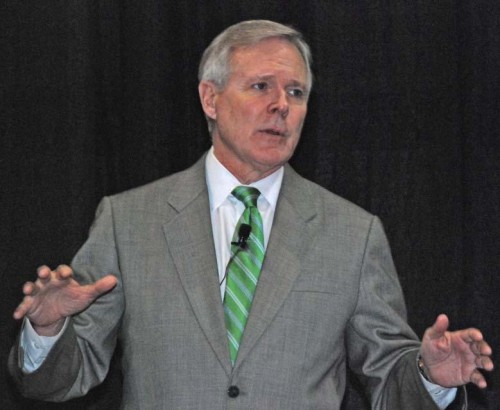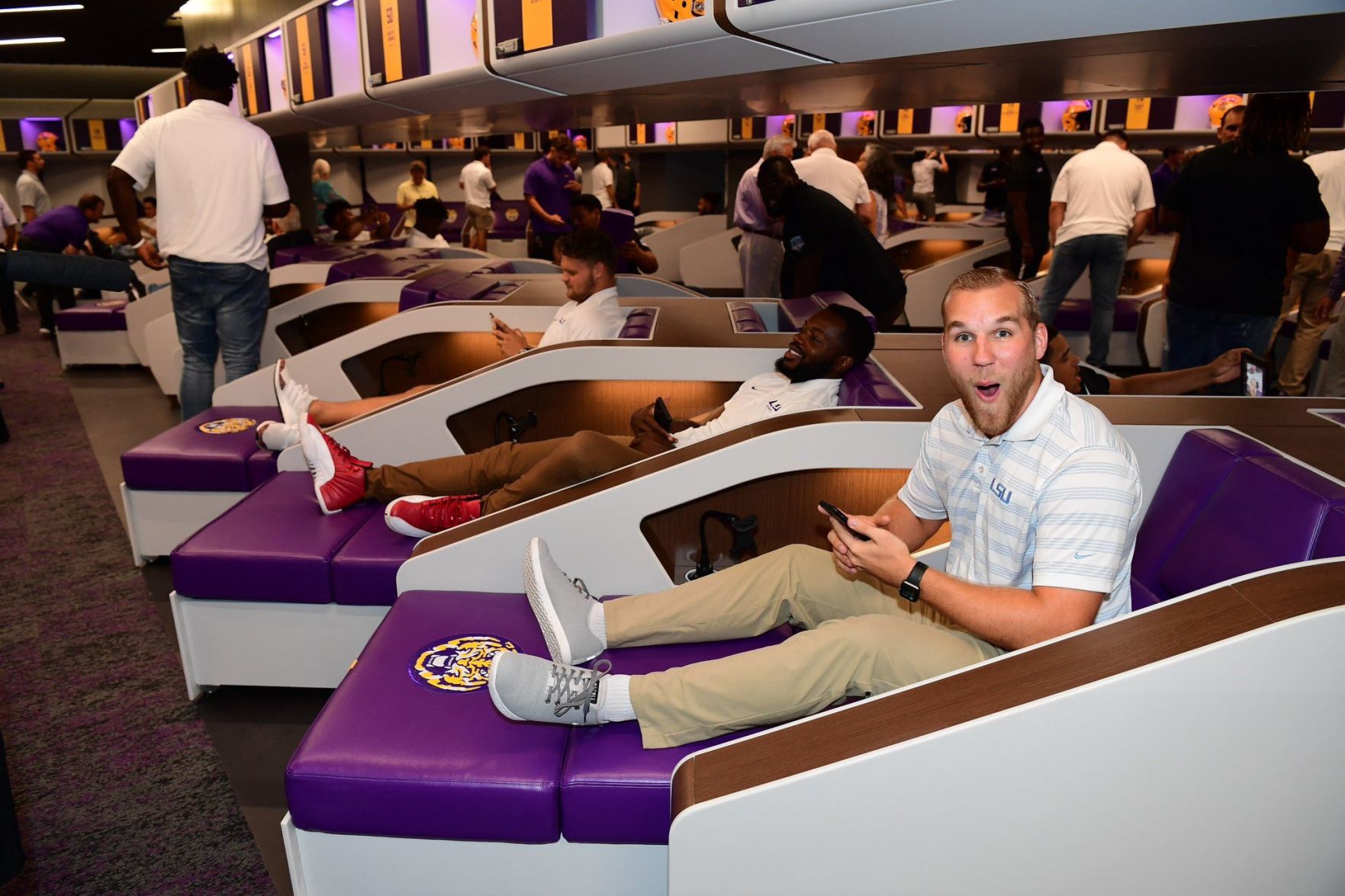
Protection vital for future, locals tell Mabus
August 17, 2010Back-to-school road safety tips for children and parents
August 19, 2010Oh, professional sports general managers.
You’ve just got to love them.
It’s one of the only professions where as soon as you’re hired, you’re immediately right, smack-dab in the fast lane toward getting fired.
That’s just how it works.
These dudes have the shelf life of fresh beignets on a Saturday morning on Bourbon Street – they just don’t last very long before they’re swallowed up and forgotten.
And it’s because of this – stupid contracts.
Even the best in the world are guilty of these moves – overpaying players who turn out to be lemons in the grand scheme of things.
We’re seeing this right now in the nation’s capital with the Washington Redskins’ $100 million man struggling to pass a 300-yard shuttle – a feat easily accomplished by one, Mr. Richard Fischer.
So for all of us who say to our television sets, “I can do a better job than that guy,” this one’s for you.
Here are Casey’s Corner’s Top 10 worst professional sports contracts of all-time:
No. 10: Rick Pitino to the Celtics – Pitino is charismatic, charming and an awfully good college basketball coach. Let’s keep the emphasis on the word COLLEGE in that sentence. The Celtics ignored the nay-sayers and gave the former Kentucky coach a 7-year, $70 million deal in 1997. Needless to say, Pitino proved to be worth about 1/1,000 of his contract as the Celtics never made the playoffs in his 4-year stint, which ended when he was fired in 2001. For those of you keeping track at home, Pitino made $686,274 per games won in his career. Not too shabby considering his teams won just more than 40 percent of the time.
No. 9: Ben Wallace to the Bulls – This one made sense at the time, but it ended up being the ultimate epic fail. Wallace signed with the Bulls for 4-years and $60 million in 2006. That was back when Wallace was still somewhat regarded as a legitimate NBA player. But by about the second game of that 4-year contract, fans saw that wasn’t the case and the end result was 5-points per game and nine rebounds per game average. Combine the anemic numbers with injury problems and the big man was eventually traded to the Cleveland Cavaliers in 2008.
No. 8: Alfonso Soriano to the Cubs – At the time he signed his 8-year, $136 million deal, Soriano was the most highly-sought baseball player next to maybe Alex Rodriguez and Albert Pujols in our time. He was deemed the “Chicago savior” and the end to the Cubs’ long-standing curse. Let’s go Corso for this one, “Not so fast, my friend.” As soon as he’s signed on the dotted line, Soriano added to the curse’s credibility failing to post a batting average above .260 for each of the past two seasons. Combine that with injury problems and the fact that he has more strikeouts (441) than home runs, RBIs and stolen bases (410) since joining the Cubs, and I’d consider it money poorly spent.
No. 7: Allan Houston re-signing with Knicks – Very rarely does a contract cripple a franchise in the pocket books. Houston’s 6-year, $100 million deal in 2001 did that for the Knicks. Sure, it started out OK, and he had career numbers in both the 2002 and 2003 seasons. But chronic knee injuries forced Houston to an early retirement and forced the Knicks to fund that early retirement – a move that kept the team well above the salary cap and effectively began their early pursuit of LeBron James. Another fail. I mean, afterall, the new NBA amnesty rule to protect teams with bad contracts is dubbed the “Allan Houston Rule,” so that should tell you something right there.
No. 6: Vernon Wells re-signing with the Blue Jays – Baseball is a sport where big market teams always overpay to keep players from little market teams. That’s fine, because they can afford it. But when a little market team spends all of their lunch money on one player, that’s when Wells’ 7-year, $126 million deal from the Jays comes into play. The Jays spent pretty much all of their salary space to keep the Louisiana native in town – a move that has backfired by not allowing the team to make any other moves to keep up with the Yankees, Red Sox and Rays. It’s also backfired in that Wells hasn’t exactly been the same ever since, posting a .240 average his first season after the new deal.
No. 5: David Beckham to the U.S. – American soccer purists have always tried (unsuccessfully) to pump soccer into our brains. Never more was that evident than when the Los Angeles Galaxy gave world-wide star Beckham a 5-year, $250 million deal to play in the MLS in 2007. Let’s just say, Beckham (when not injured) is going at about half-speed. And let’s also just say that we, as Americans still don’t care about soccer. That’s a quarter of a billion down the drain.
No. 4: Erick Dampier to the Mavericks – I cut the GMs of the world some slack and say that most of the above players on this list were (at some point) dominant players. But Dampier was then, is now, and will always be a jobber in the ranks of the NBA’s big-man hierarchy. So why exactly did he get a 7-year, $73 million deal again? If all I need to do is average a half-dozen points and rebounds per game to get $73 million, pass me the rock and sign me up, Mr. Cuban. I’m ready to go.
No. 3: Mike Hampton to the Rockies – Signing a dominant pitcher to a big deal in Coors Field is the first no-no. So signing Hampton to an 8-year, $121 million deal never made sense from the start. Hampton was terrible his entire time in Colorado. To make it worse, the team traded him (while playing almost all of his salary, still), and as soon as he was traded, his left elbow seemingly became an endangered species, forcing him to miss two full seasons and portions of every other season of his contract with the Atlanta Braves. He won 56 games over the course of his 6-year deal, good for $2.1 million per win. At that rate, Greg Maddux would have deserved a $745 million deal.
No. 2: JaMarcus Russell to the Raiders – Oh, JaMarcus. Poor, poor, JaMarcus. Or rather, poor, poor Oakland Raiders, because they gave this dude 6-years, $68 million to be the new face of the franchise following the 2007 NFL Draft. Russell used most of that money to fund his hamburger habit, eating his way in and out of shape, which affected his play and made him a bust. The Raiders eventually released him this offseason, but the close to $50 million in guaranteed money still sits in Russell’s bank account – or in the bank account of a Crispy Cream store somewhere near the quarterback’s home. Judging by his physique, I’d bet on the donut store’s wealth.
No. 1: Grant Hill to the Orlando Magic – Grant Hill as a Detroit Piston was the closest thing to Michael Jordan since MJ, himself. He razzled, he dazzled and he played his way to a 7-year, $93 million contract with the Magic in 2000. But the problem was the Magic signed Hill while he was recovering from offseason ankle surgery. Yeah, needless to say, Hill never recovered, playing just 33 games per year throughout his stay in Orlando, while being just a shadow of his former self. For every game Hill suited up as a member of the Magic, he made $465,000. That’s close to $500,000 an hour.







